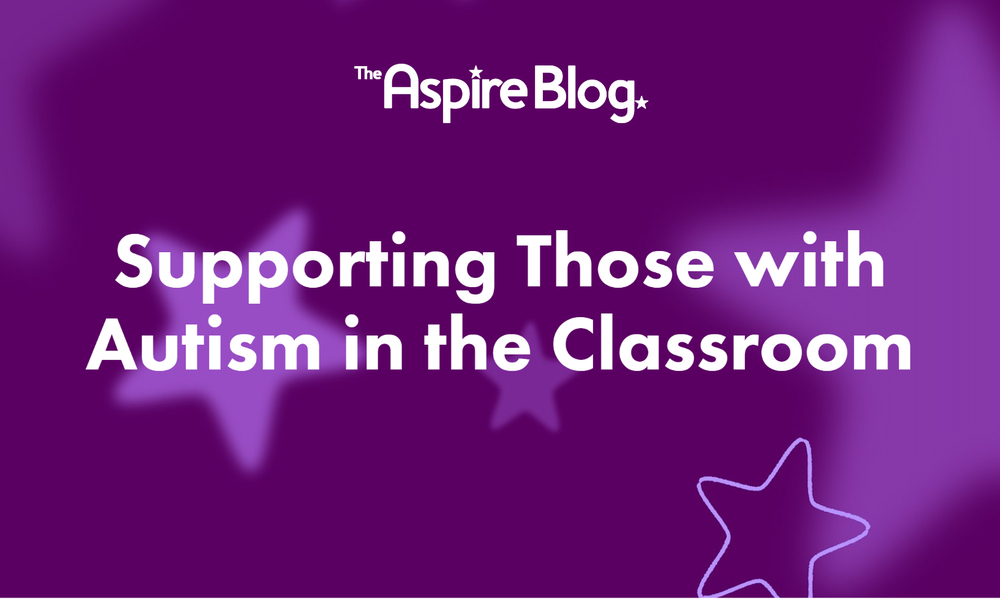Supporting Those with Autism in the Classroom
Published date: 2020/04
.jpg)
Teaching staff may often face challenges within the classroom dealing with students who have autism, so we want to help and guide you to ensure you can help your students and yourself as much as possible.
Many people will have heard the term autism but be unaware of its meaning, there are many forms of autism and students may show multiple signs or only a few, however it is vital that as educators we are here to help. Some signs of autism are noticed from ages 2-3, however in some cases younger children are diagnosed. It’s important to be aware of the signs and ways you can help your students, some may confuse the signs of a child with autism with general behaviours however it’s important to be able to differentiate them from other children.
Signs of Students with Autism
Here are only a few signs of autism, however these are commonly known to be some of the signs you would see first.
Needing to have routine
Lacking awareness of danger
Having difficulty communicating with others
Experiencing anxiety
Avoiding eye contact
Attachments to objects
Being sensitive to sounds
School Strategies for Students with Autism
Dealing with autism in schools isn’t easy however there are some ways it can be maintained in certain ways. There aren’t ways to stop this however you can do your best to help them.
Use a routine in your lessons, this could be doing certain tasks in the mornings and having lesson breaks at the same time each day. By keeping routine students can expect what will happen and get used to their daily routine, however an unexpected change could cause stress for pupils.
Children who have autism or are showing signs of autism can tend to have difficulty communicating with others, especially those in the classroom. As teachers you can help with this by encouraging social activities with other students, perhaps by small games or tasks that they can involve themselves in.
Children from a young age can experience anxiety, and unfortunately there is no ‘cure’ for dealing with anxiety however there are ways to help. It’s important to make time for fun in lessons, although it is important to learn as educators there are many ways to do this in a more interactive and interesting way for children, by making them smile and have fun can also encourage more interactions with other pupils and also comfort the children to come into school knowing they can also have fun outside of home.
What Should You Ask Yourself?
Every child is unique, and their behaviours can differentiate, many factors can add to this, some being the different types of autism, the way students learn, or their age. As teachers it is important to think about the difference in students and the way you can help them in the best way possible.
What are the children’s/child’s strengths and weaknesses?
By recognising students’ strengths and weaknesses, you are then able to concentrate on how you can help them in the most most effectively.
How do the children/child learn the best?
With this you may think about the way you teach and your learning tools such as visuals, listening, or doing tasks.
What do the children/child enjoy doing the most?
From this you can figure out the best ways to include this in your teaching and how you can ensure your children are learning in the best possible way.
“Autism is not a disability it’s a different ability.”
- Stuart Duncan
Join other teachers and visit the Aspire Blog for the latest education news and tips for the classroom. Plus we offer fantastic jobs for aspiring educators, or perhaps you want to register with us? Get in touch with our SEND department today on 0121 314 3606 or email info@aspirepeople.co.uk.
